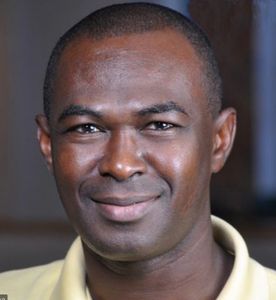Alumnus Akinwumi Ogundiran (GRS’00) receives a large AIA grant
Akinwumi Ogundiran (GRS’00), currently at The University of North Carolina at Charlotte, received a large Archaeological Institute of America grant for Archaeology of Dependency in the Royal Necropolis of the Oyo Empire (Nigeria), Nigeria. The project is a continuation of his research on the political economy and social ecology of the Oyo Empire. A National Geographic grant he received a year ago has enabled him to uncover the long-term settlement history of Bara, now dated to the fourth century BC and with four phases of occupation. The long-term settlement history and landscape approaches give good insight into the imperial period that he will investigate using the AIA grant.
 ARCHAEOLOGY OF DEPENDENCY IN THE ROYAL NECROPOLIS OF THE OYO EMPIRE (NIGERIA)
ARCHAEOLOGY OF DEPENDENCY IN THE ROYAL NECROPOLIS OF THE OYO EMPIRE (NIGERIA)
The archaeology of dependency in the royal necropolis (Bara) of the Oyo Empire, 1570-1840 (West Africa), is the subject of this study. Archaeological and anthropological studies have focused on the modalities of dependent relationships, but not on the living experiences of institutional dependents. This research project will contribute to filling this gap. I will carry out excavations at five residential units in Oyo royal necropolis to understand the everyday lives of the hundreds of priestesses, priests, soldiers, workers, and others who were confined there for the rest of their lives to serve the needs of the deceased but deified kings of the empire. The residents of Bara lacked personhood, disavowed relationship with the outside world, lacked familial obligations, and cannot reproduce themselves. I will investigate how this state of dependency affected everyday lives in the necropolis and the kinds of agencies the residents possessed. The results of the 12-week fieldwork will lead to at least three major articles in peer-review journals, and the completion of the dossier for nominating the necropolis to the National Historic Site status. The empirical data will stimulate comparative, cross-cultural dialogue on the dynamics of dependency as a sociological fact.